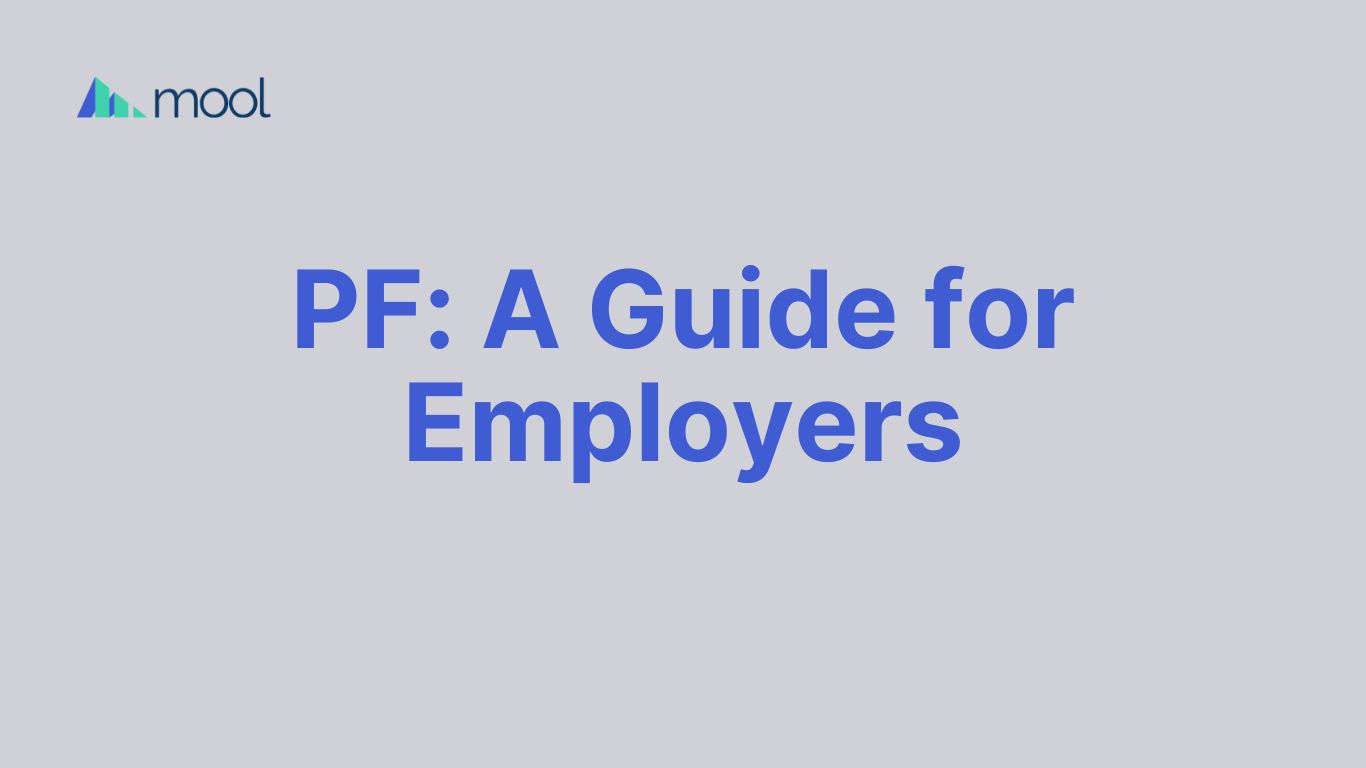Understanding Provident Fund (PF): A Comprehensive Guide for Employers
13 Dec, 2024

What is a Provident Fund in Salary?
Provident Fund (PF) is a retirement savings scheme mandated by the Employees' Provident Funds and Miscellaneous Provisions Act, 1952. It's a crucial component of employee benefits and a significant financial planning tool for both employers and employees.
Why does Mool need PF information?
- Tax Benefits: Both the employee's and employer's contributions to the PF account are eligible for tax deductions under Section 80C of the Income Tax Act, up to a certain limit, and hence crucial for salary personalization calculations.
- Available Options: Employers can choose to pay a min of Rs 1800 monthly or 12% of basic. The choice and calculations are essential in designing compensation for each employee.
Why is PF Important for Employers?
- Legal Compliance: Adhering to PF regulations is mandatory. Non-compliance can lead to severe penalties. Timely and accurate PF contributions and returns are essential to avoid legal issues.
- Employee Satisfaction and Retention: PF is a valuable employee benefit that can boost morale and job satisfaction. Offering competitive PF benefits can attract and retain top talent.
- Long-Term Financial Security for Employees: PF helps employees build a substantial retirement corpus. Employers contribute to their employees' financial well-being.
Key Aspects of PF for Employers
- Employee Provident Fund (EPF): Both employer and employee contribute a fixed percentage of the employee's basic salary to the EPF account. Employer's contribution is tax-deductible. Employee's contribution is eligible for tax benefits under Section 80C of the Income Tax Act.
- Employee Pension Scheme (EPS): A portion of the employer's contribution is allocated to the EPS, providing pension benefits to employees upon retirement.
- PF Account Management: Employers are responsible for timely PF contributions and returns. Accurate record-keeping is essential for smooth PF operations. Regular updates to employee details are necessary to avoid discrepancies.
- PF Transfers and Withdrawals: Employers must facilitate seamless PF transfers when employees switch jobs. Adherence to PF withdrawal and transfer procedures is crucial.
Tips for Employers to Manage PF Effectively
- Stay Updated with PF Regulations: Keep abreast of the latest PF rules and amendments. Consult with PF authorities or tax consultants for accurate guidance.
- Prioritize Timely Compliance: Make timely PF deposits to avoid penalties and interest charges. File necessary returns and forms on time.
- Provide Clear Communication to Employees: Educate employees about PF benefits, contributions, and withdrawal processes. Address employee queries and concerns promptly.
Conclusion
By understanding the intricacies of PF and adhering to regulations, employers can effectively manage PF obligations and contribute to the financial security of their employees. A well-managed PF scheme not only ensures compliance but also enhances employee satisfaction and loyalty.
Access exclusive content and expert tips by subscribing to our newsletter today!
Mool is a leading financial startup that aims to create a sustainable solution for corporate employees by facilitating effective tax planning, smart investments, insurance, and borrowing options. Mool simplifies the personal financial and taxation jargon and makes it accessible to all. With the products of Mool, organizations and employees can now maximize the value of their salaries without a hassle. Mool’s mission is to create a platform to educate everyone, optimize the growth of their money, and empower them with rich facts and proven analysis for decision making.